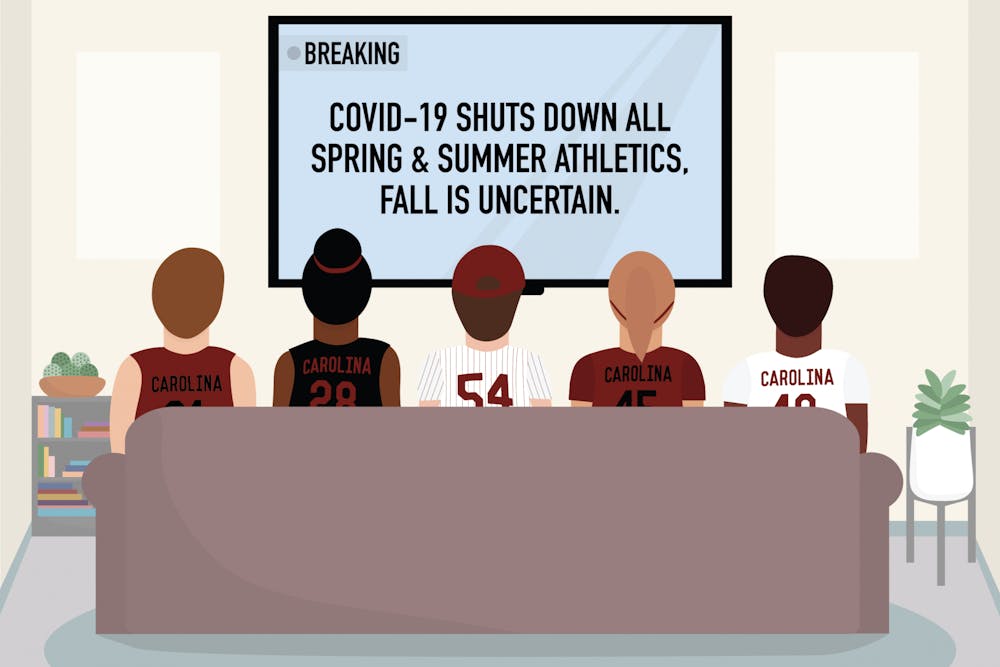On March 11, 2020, the sports world came to a quick and sudden halt after Rudy Gobert of the Utah Jazz tested positive for COVID-19. Moments later, the NBA announced it was postponing the rest of its season.
Within the next 24 hours, the MLB, NHL and NCAA all canceled or postponed their seasons, as well.
“I was really surprised, and then, at the same time, I was a little bit concerned, too, because my family in Italy experienced some coronavirus before we did,” graduate women’s tennis player Silvia Chinellato said in an interview with Gamecocks Online.
It has been more than a year since COVID-19 struck the sports world, and there has been a difference in and out of the locker rooms for South Carolina's teams.
Players and coaches are tested multiple times a week and told to wear masks when they are not actively playing. Teams also have restrictions on practice times, along with how much time they can be together.
“We've been training this team in an eight-hour, limited segment. We've only been allowed four hours a week on the field. That's a challenge. A lot of [players] haven't played since December," head women's soccer coach Shelley Smith said in an interview with Gamecocks Online. "The limited-time is OK, but we haven't been able to progress like we would if we had a little more time."
Less time at practice has been an issue for many teams on campus. While positive COVID-19 tests have been rare in USC athletics, they nonetheless have occurred. In December, the men’s basketball team faced a damaging outbreak of COVID-19.
The team took a hiatus for weeks and canceled many games, including all of their remaining non-conference games. The weeks without practice left the future of the season unclear.
Multiple other teams on campus had unexpected pauses and cancellations of games. Football, women’s basketball, women’s soccer and men’s soccer are a few of the teams on campus who have had to postpone or cancel a game.
This situation has taken a toll on players.
“Mental health for these kids is a complicated formula because they’ve got no outlet right now,” head men's basketball coach Frank Martin said on his “Carolina Calls” radio show.
The limited interaction with people outside the team has also been an issue in recruiting the next class of South Carolina athletes.
When COVID-19 safe recruiting guidelines were released by the NCAA, recruitment had lengthy dead periods. During this time, coaches could not have in-person contact with potential recruits.
"The challenge for this next class is that we have not seen a lot of them in-person. It's going to be difficult to make a decision," Smith said.
This process has also made it challenging for players to build a connection with the team and the school prior to their arrival.
“They're having to make decisions on schools based on not really having interactions in-person with the coaching staff or the team," Smith said. "A lot of them, if they haven't already been on campus, they have to come do a tour of their own without having anyone show them around or see what the team is like."
All of this factors into how successful a team can be in a game. Less time around each other on and off the field can affect a team’s chemistry in ways that negatively impact performance.
“This is not the year to pound on the players," Martin said. "This is not the year to over-judge good days and bad days. We should all celebrate the days we get to go out there and play.”

